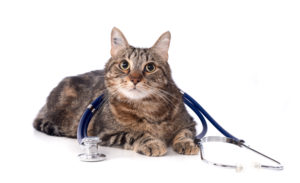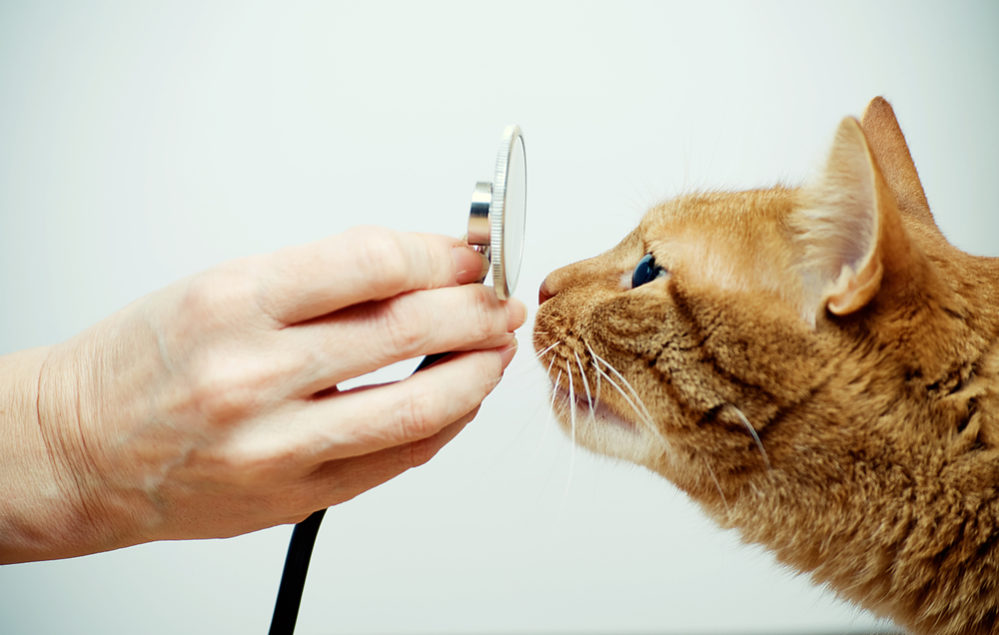A healthy lifestyle can help minimize veterinary expenses, but it can’t guarantee your cat will never get sick or injured. Given the high cost of veterinary care, buying health insurance for your kitty is a wise idea.
Keeping our cats healthy and happy is a top priority. Thanks to remarkable advances in veterinary care, doctors can quickly diagnose and treat a wide range of complicated medical conditions and serious injuries. The downside is that these lifesaving measures can be extremely expensive and even unaffordable to many. Because of the rising cost of comprehensive veterinary care, many people are purchasing pet health insurance for their cats. This ensures that any necessary and/or unexpected veterinary care is more affordable. Health insurance can give you peace of mind if your kitty ever gets sick or injured.
What to look for in an insurance policy
There are a wide range of pet health insurance policies to choose from, ranging from catastrophic only coverage, to policies that cover office visits, veterinary exam fees, medications and even alternative treatments for your cat. Unfortunately, no pet health insurance policies cover pre-existing conditions; some will cover hereditary conditions, but many do not.
Good pet health insurance plans offer policies that provide the appropriate amount of coverage at an affordable cost. Many providers offer options that allow you to customize your deductibles, the reimbursement percentage more commonly known as co-insurance. But be careful to steer clear of any plans that charge per-incident deductibles as this will end up reducing your payouts. Fortunately, the majority of high quality plans offer annual deductibles.
Although many providers will immediately cover an accidental injury, they all require a waiting period to cover illnesses, and this can range from 15 to 30 days.
Most pet health insurance plans cover cats from kittenhood into their senior years. Many have annual reimbursement caps, while others are unlimited. For example, one provider offers an optimum plan with an annual cap of $20,000. Their top comprehensive plan includes wellness, dental, alternative treatments such as acupuncture, and even, if recommended by a veterinarian, stem cell therapy. While other providers may offer policies with no annual caps, they may charge extra for riders that will cover annual wellness visits.
Questions to ask before buying a policy
Does the policy cover routine veterinary visits?
Some providers don’t, while others will, so it’s important to do your research. Many offer riders for an additional fee to cover annual wellness exams, dental care and other necessary services. A few providers require you to pay for the cost of routine exams and veterinary visits, and these are not reimbursable. Be sure to inquire whether the plan has unlimited coverage and if it reimburses for veterinary fees.
Find out if there are any vaccine and/or annual examination requirements you need to fulfill to maintain coverage.
What conditions does the plan include, and which are excluded?
This is an especially important question to ask if you and your vet take a holistic approach to your cat’s healthcare. Not all providers cover alternative therapies, or they may only cover a few selected modalities.
How much will it cost?
Visit several providers’ websites and ask for quotes on the plans that best suit you and your cat’s needs. The majority of providers have expert, helpful agents with whom you can chat on the phone. They can answer your questions about pricing and anything else you need to know, and discuss the various policies that suit your needs.
Is there an age limit for enrollment?
While some providers will accept older cats into their programs, the optimum time to purchase pet health insurance is when your cat is young and healthy.
 The high cost of care
The high cost of care
Although a young cat may not get seriously ill, unexpected health emergencies can and do occur. Veterinary specialists can provide cats with state-of-the art medical care, but the price tag can be staggering. Think about whether or not you could afford extensive veterinary care if it became necessary. For example, should your cat accidently ingest a cooked chicken bone, the cost of abdominal surgery to remove it can average $2,000. The fee for fixing a broken leg can cost up to $1,600, and to repair a ruptured bile duct, the price tag could be over $2,000.
Having to make serious medical decisions for your cat based on how much you can afford – or not – can be excruciatingly stressful. Buying health insurance will help ensure that your beloved kitty can get all the necessary care he needs, if or when it becomes necessary.







No Comment